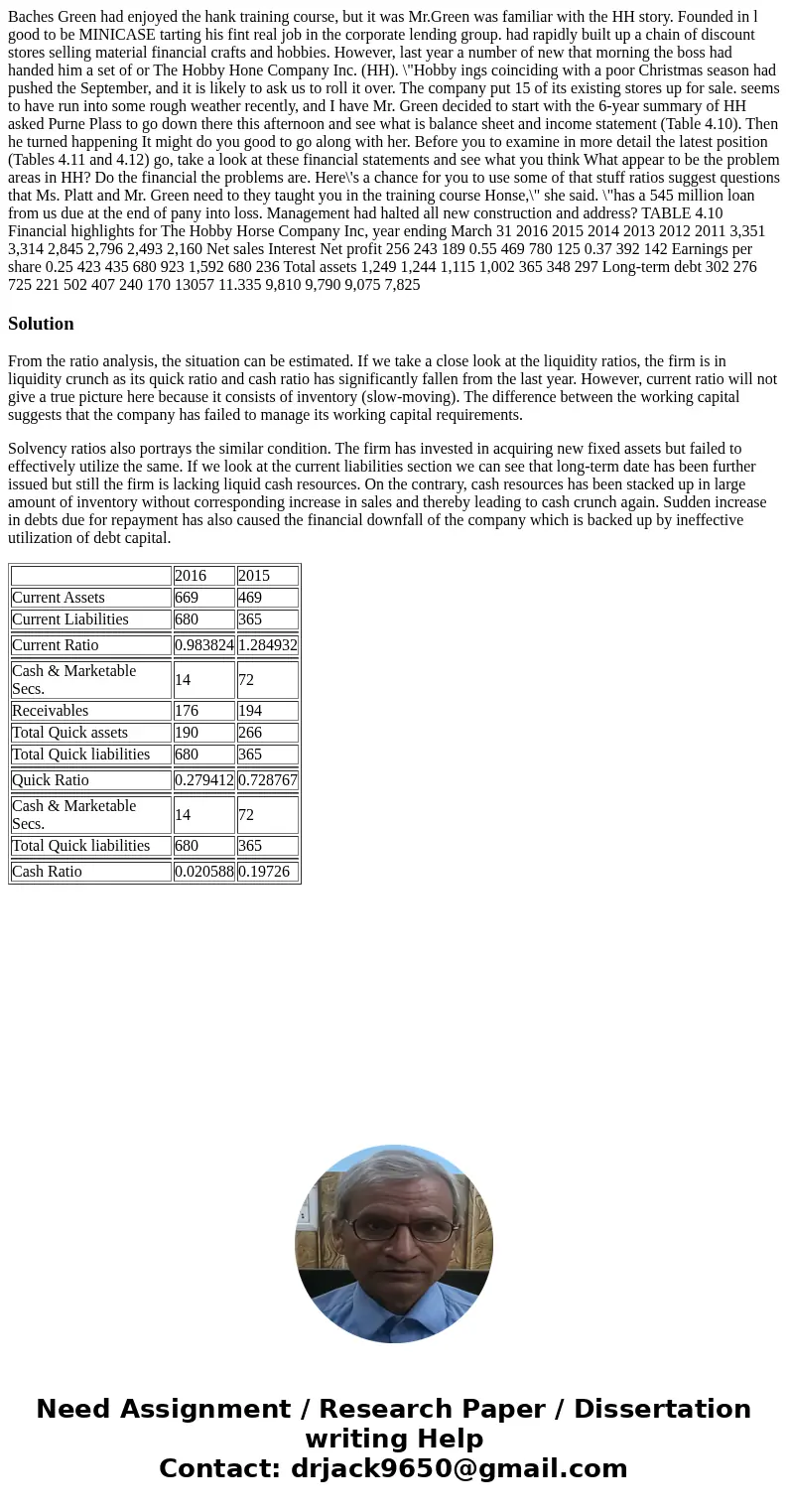Baches Green had enjoyed the hank training course, but it was Mr.Green was familiar with the HH story. Founded in l good to be MINICASE tarting his fint real job in the corporate lending group. had rapidly built up a chain of discount stores selling material financial crafts and hobbies. However, last year a number of new that morning the boss had handed him a set of or The Hobby Hone Company Inc. (HH). \"Hobby ings coinciding with a poor Christmas season had pushed the September, and it is likely to ask us to roll it over. The company put 15 of its existing stores up for sale. seems to have run into some rough weather recently, and I have Mr. Green decided to start with the 6-year summary of HH asked Purne Plass to go down there this afternoon and see what is balance sheet and income statement (Table 4.10). Then he turned happening It might do you good to go along with her. Before you to examine in more detail the latest position (Tables 4.11 and 4.12) go, take a look at these financial statements and see what you think What appear to be the problem areas in HH? Do the financial the problems are. Here\'s a chance for you to use some of that stuff ratios suggest questions that Ms. Platt and Mr. Green need to they taught you in the training course Honse,\" she said. \"has a 545 million loan from us due at the end of pany into loss. Management had halted all new construction and address? TABLE 4.10 Financial highlights for The Hobby Horse Company Inc, year ending March 31 2016 2015 2014 2013 2012 2011 3,351 3,314 2,845 2,796 2,493 2,160 Net sales Interest Net profit 256 243 189 0.55 469 780 125 0.37 392 142 Earnings per share 0.25 423 435 680 923 1,592 680 236 Total assets 1,249 1,244 1,115 1,002 365 348 297 Long-term debt 302 276 725 221 502 407 240 170 13057 11.335 9,810 9,790 9,075 7,825
From the ratio analysis, the situation can be estimated. If we take a close look at the liquidity ratios, the firm is in liquidity crunch as its quick ratio and cash ratio has significantly fallen from the last year. However, current ratio will not give a true picture here because it consists of inventory (slow-moving). The difference between the working capital suggests that the company has failed to manage its working capital requirements.
Solvency ratios also portrays the similar condition. The firm has invested in acquiring new fixed assets but failed to effectively utilize the same. If we look at the current liabilities section we can see that long-term date has been further issued but still the firm is lacking liquid cash resources. On the contrary, cash resources has been stacked up in large amount of inventory without corresponding increase in sales and thereby leading to cash crunch again. Sudden increase in debts due for repayment has also caused the financial downfall of the company which is backed up by ineffective utilization of debt capital.
| 2016 | 2015 |
| Current Assets | 669 | 469 |
| Current Liabilities | 680 | 365 |
| | |
| Current Ratio | 0.983824 | 1.284932 |
| | |
| Cash & Marketable Secs. | 14 | 72 |
| Receivables | 176 | 194 |
| Total Quick assets | 190 | 266 |
| Total Quick liabilities | 680 | 365 |
| | |
| Quick Ratio | 0.279412 | 0.728767 |
| | |
| Cash & Marketable Secs. | 14 | 72 |
| Total Quick liabilities | 680 | 365 |
| | |
| Cash Ratio | 0.020588 | 0.19726 |

 Homework Sourse
Homework Sourse